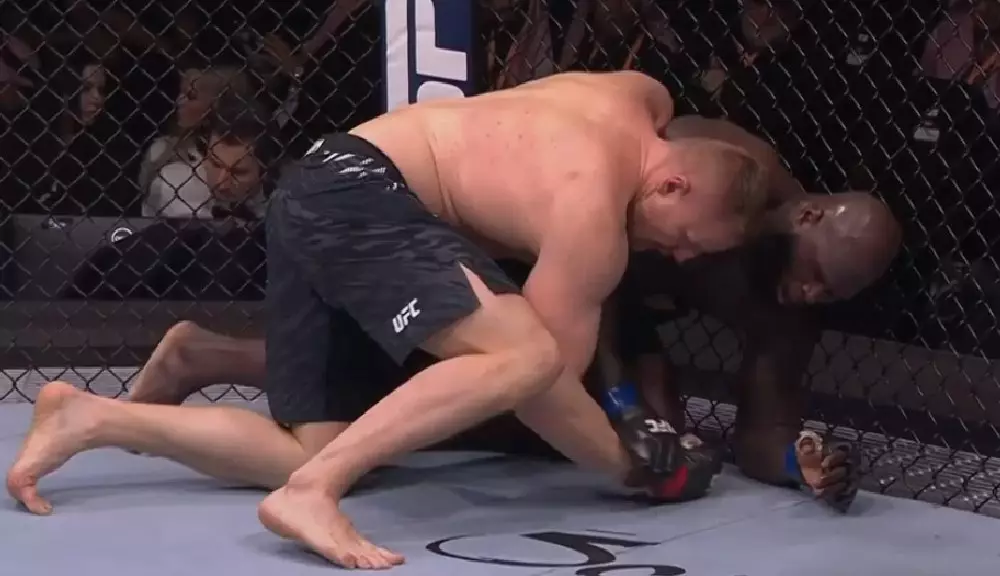When enthusiasts of mixed martial arts gather to witness heavyweight bouts, the expectation often revolves around explosive knockouts and fierce exchanges. However, the clash between Sergei Pavlovich and Jairzinho Rozenstruik at UFC Fight Night 250 in Riyadh, Saudi Arabia, reshaped that narrative. Instead of a showcase of raw power, fans were treated to a calculated display of technique and strategy that led to a decisive yet methodical victory for Pavlovich.
Sergei Pavlovich (18-3 MMA, 6-3 UFC) entered the fight determined to regain his footing after a series of setbacks. His previous bouts against Tom Aspinall and Alexander Volkov had resulted in losses, which added intense pressure to deliver a compelling performance. Pavlovich’s approach in this match, characterized by patience and wrestling, starkly contrasted with the expectations of an all-out slugfest. Instead of seeking immediate finishes, he focused on controlling the bout’s tempo, utilizing grappling skills to neutralize Rozenstruik’s offensive capabilities.
Jairzinho Rozenstruik (15-5 MMA, 9-5 UFC) found himself under a relentless onslaught of Pavlovich’s pressure. Without the ability to mount a significant offense, Rozenstruik struggled to defend against the larger man’s grappling tactics. His failure to implement a successful game plan became evident as the fight progressed, ultimately leading to a unanimous decision loss that saw Pavlovich sweeping the judges’ scorecards at 30-27 across the board.
The significance of Pavlovich’s victory extends beyond simply ending a losing streak. By defeating Rozenstruik, he reignited his championship aspirations and provided a solid foundation for his continued career in a division known for its unpredictability. This victory not only bolstered his confidence but also reaffirmed his position among the elite heavyweights in the UFC, preparing him for potential matchups against top contenders.
Conversely, the loss for Rozenstruik marked the end of a two-fight win streak, effectively stalling his momentum in a highly competitive division. Having previously secured victories over fighters like Shamil Gaziev and Tai Tuivasa, the defeat was a harsh reminder of the challenges that come with stepping into the octagon against opponents with diverse skill sets.
While the fight may not have fulfilled the visceral excitement typically associated with heavyweight bouts, it highlighted an essential aspect of mixed martial arts: strategy often outweighs brute force. Pavlovich’s calculated performance serves as a reminder that in the realm of elite combat sports, the ability to adapt and impose one’s will can lead to victory, even when the action unfolds in less dramatic fashion. This fight, although devoid of a highlight-reel knockout, showcased the tactical depth of MMA, emphasizing that resilience and technique are just as valuable as the ability to deliver a powerful blow. The heavyweight division continues to evolve, and moments like these offer fans a more nuanced understanding of what it takes to succeed.

